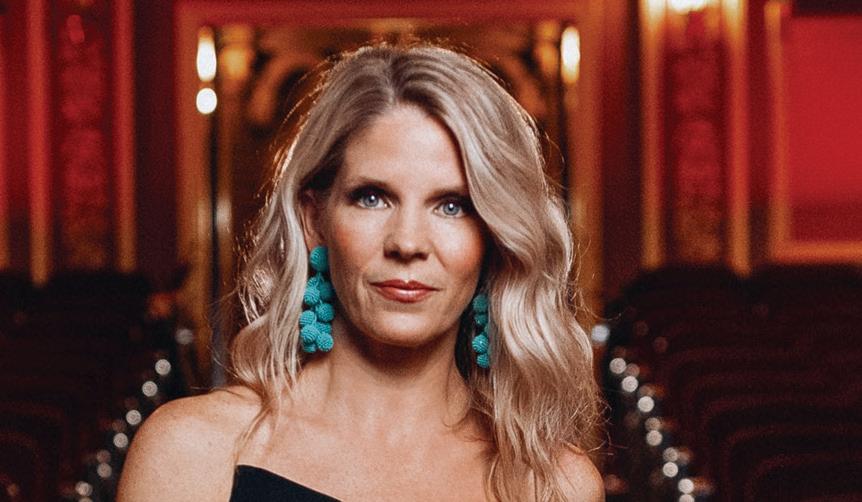
14 minute read
Arizona’s Republican candidates can’t shake charges of antisemitism

SHANNON LEVITT | STAFF WRITER
Advertisement
When Tony Zinman, founder of Tucson Jews for Justice, first learned about Andrew Torba, he immediately started worrying what effect he would have in Arizona.

“I heard about Torba while following the governor’s race in Pennsylvania (Republican candidate Doug Mastriano was criticized for his relationship with Torba) and realized we’ll have the same problem with
Torba, a self-identified Christian nationalist, began the social media site “Gab” as a way to establish a “parallel Christian society.”
Torba said that Jews are not welcome on the site, which is favored by the far-right because it permits speech that mainstream social media platforms have banned. Gab was used by the shooter who killed 11 Jews in their synagogue in Pittsburgh in 2018.
PAGE 2
The Singers share their art with SMoCA
Iris and Adam C. Singer’s art is on display in the exhibit, “In Our Time: Selections from the Singer Collection” at the Scottsdale Museum of Contemporary Art. See page 15. COURTESY OF SMOCA

Zinman’s fears were realized when Torba announced his endorsement of several Arizona Republicans this summer.
State Rep. Mark Finchem, a Republican representing the 11th district in Arizona and a candidate for secretary of state, touted the endorsement saying he was “honored” to have it.
And he’s not alone.
State Sen. Wendy Rogers also posted released several public statements denouncing “hate and antisemitism” during this campaign season.
“Antisemitism is a cancer. Hate is a cancer. White supremacy is a cancer. Unfortunately, those cancers exist with some Arizona Republican officeholders and candidates. A few Republican leaders are adjacent to white supremacists. Others court their approval. Some endorse those antisemites,” JCRC said.
Problematic Associations
Then the Arizona congressman spoke at Fuentes’ America First conference.
Matt Brooks, executive director of the Republican Jewish Coalition (RJC), posted on his Twitter feed an article in the conservative National Review headlined “Paul Gosar Hangs Out with Racists to Own the Libs.”
“This is reprehensible, @RepGosar,” the RJC said in a tweet. “Your association with Fuentes, and this event are absolutely inexcusable. You must immediately cancel this event, apologize, and denounce antisemite and Holocaust-denier, Nick
Paul Rockower, executive director of JCRC, also condemned Gosar in a
“The JCRC is disgusted by the full embrace of white nationalists by AZ
By March 2022, Senate Minority Leader Mitch McConnell chastised Gosar for attending this year’s America First Political Action Conference in Orlando, saying, “There’s no place in the Republican Party for white supremacists
The RJC said the lawmaker’s participation
2022 Phoenix Jewish News Print Dates
January 7
January 21
February 4
February 18
March 4
March 18
According to a 2022 report from the Anti-Defamation League, the number of antisemitic incidents in Arizona more than doubled in 2021 compared to 2020. Forty-one of those incidents were some form of harassment, and 15 were acts of vandalism.
There have been so many accusations that the non-partisan Jewish Community Relations Council of Greater Phoenix (JCRC), which “scrupulously avoids getting involved in electoral politics,”

U.S. Rep. Paul Gosar has been controversial for years for his support of right-wing conspiracy theories and his ties to extremists.
In 2021, Gosar drew the ire of Jewish groups across the political spectrum when he joined fundraising forces with Nick Fuentes, a white supremacist who questions the number of Jews who were killed in the Holocaust and believes that Israel has a malicious influence on U.S. policy.

Fuentes, who also founded the “groyper army,” a radical fringe group, said the Supreme Court could only overturn Roe v. Wade without Jews. “We need a government of Christians” and “Jewish people can be here, but they can’t make our laws.”
“If Ruth Bader Ginsburg, a Jewish woman, didn’t die last year, so that Amy Coney Barrett, a Catholic woman, could be appointed to the bench, we would still have Roe v. Wade,” Fuentes said. “Now you tell me that this is a Judeo-Christian country… You tell me that it doesn’t
August 5
August 19*
September 9
September 16
October 14**
October 21
March 25
April 1
April 8
May 6
May 20
June 10
July 8
July 29
| editor@jewishaz.com | advertising@jewishaz.com subscriptions@jewishaz.com | www.jewishaz.com
PUBLISHER Jewish Community Foundation of Greater Phoenix
GENERAL MANAGER Rich Solomon | 602.639.5861 rsolomon@jewishaz.com
MANAGING EDITOR
Mala Blomquist | 602.639.5855 mblomquist@jewishaz.com
STAFF WRITER
Shannon Levitt | 602.639.5854 slevitt@jewishaz.com
ADVERTISING SALES CONSULTANT
Jodi Lipson | 602.639.5866 jlipson@jewishaz.com
SUBSCRIPTIONS 602.870.9470 x 1 subscriptions@jewishaz.com
GRAPHIC DESIGNER
Jay Sevidal | 410.902.2313 ads_phoenixjn@midatlanticmedia.com
October 28
November 4
November 18
December 2
December 16
*Best of Magazine
**Annual Directory
WWW.JEWISHAZ.COM
Jaime Roberts, Publisher | 2013-2016
Florence Newmark Eckstein, Publisher | 1981-2013
Cecil Newmark, Publisher | 1961-1981
Pearl Newmark, Editor | 1961-1981
M.B. Goldman, Jr., Founder | 1948-1961
PROUD MEMBER OF
Headlines
event will be livestreamed. A few watch parties are being organized by the Arizona Community Foundation (ACF), the event’s co-sponsor, in its Yuma, Flagstaff and Sierra Vista affiliate offices.
While some people who attend the seminar have networking top of mind, there are four hours of continuing education on offer, and much of the content is very technical.

For those without the appropriate background, “it might be hard to follow,” said Rabinovich.
Event speaker Joshua Rubenstein, Katten New York partner and chair of the firm’s private wealth department, agreed — with a slight caveat.
He said the professional audience of bankers, trustees and asset managers will be very familiar with the concepts he’s addressing, but it would be a mistake for him to assume that if he cites a section of the Internal Revenue Code, “they’ll just nod their heads and say, ‘Got it.’”
His task is to present enough information for the technophiles to learn something — especially those needing the four hours of continuing education — while also keeping the interest of those who are still relatively new to their roles.
“I’ll do my best to be informative and amusing at the same time,” he said. “I pride myself on being amusing — otherwise, people pull out phones and you lose them.”
Rubenstein is a popular speaker and travels to events several times a month. He will be bracketing his time in Arizona between speeches in Miami for the International Bar Association on Monday and in San Francisco for the American College of Trust and Estate Counsel on Friday and Saturday.
He knows how to engage an audience and has, on occasion, brought along his guitar. But there will be no time for leading songs in Phoenix.
Rubenstein will present a four-hour program on three related talks, and though there will be plenty to distinguish them, there is one underlying theme: How to keep up with change.
“We’ve been dealing with non-stop, protracted and unpredictable change, and even though as Heraclitus said 2,500 years ago, ‘the only constant is change,’ the rapidity of the change now and its unpredictable nature is different,” he said.
Rubenstein works with many private clients, which is “a world where you have to be able to tell people what to do,” he explained. “I help people figure out what really changed and what really didn’t.”
Knowing the difference is essential to keep clients from making mistakes, another thing he will talk about at the Biltmore on Nov. 2.
“I was a Greek and Latin major in college and the difference between tragedy and Greek tragedy is that with tragedy, bad things happen to people; but in Greek tragedy, bad things keep happening. Many people can’t learn from mistakes and keep repeating them.”
Rubenstein always illustrates his points with a lot of examples. He never uses PowerPoint, however, because he wants to look at the faces in the audience to watch the reaction, which is why it’s so helpful that he’s able to present in person again.
“If they have a glazed look, I step back and give extra explanation,” he said.
The Tax & Legal Seminar was first presented by the Jewish Community Foundation of Greater Phoenix (JCF — now the Center for Jewish Philanthropy) in 1993 under Neal Kurn’s leadership, among others. It expanded the program by collaborating with ACF as a co-sponsor of the event beginning in 2001.



“I’ve done a lot of research and there are few communities around the country where the Jewish community works so closely with a secular community foundation on an event like this,” Rabinovich said.
She has worked on the annual event since starting at JCF in 2015, and she has found that each year has unique challenges, though none so much as the last two pandemic years.
“It is never easy putting on an event of this scale,” she said. “But it’s a labor of love.”
When dealing with less-than-glamorous details of the tax code, one might be tempted to think there’s never an exciting moment, but Rabinovich dared to differ.
A few years ago, right before the annual seminar, important changes to the tax code were passed into law. Professor Samuel Donaldson, that year’s speaker, changed his entire presentation within 48 hours to incorporate all of the new changes that were coming.
“It was remarkable,” said Rabinovich. “That real-time change was probably the most exciting thing that’s happened.”
Richard Kasper, CJP’s CEO, highlighted the seminar’s tremendous growth year over year — until the COVID-19 interruption in 2020.
“It used to be considered an outrageous success if we got 200 people to show up, but before the pandemic, we had 400 people showing up,” he said. He gives Rabinovich a lot of the credit for bringing in new sponsors every year, which increases attendance and engagement.
Sponsorships help the organizers provide a high-level seminar and more than half of the tickets will be going to them. Those at the top-tier level can have a marketing table, which is a big selling point.
“When people show up in the morning, people are registering and then taking the time to look at the marketing tables,” Rabinovich said. “That’s probably my favorite part.”
She pointed out that there is still room for people who want to attend in person and online.
Kasper touted the seminar for providing valuable content.
“These are people who take their professional work very seriously. And this is very high-level stuff that they’re learning,” he said. “It might seem esoteric to the average civilian, but this is their work and they care about it.”
Much of the work is accomplished by the seminar’s planning committee, which comprises 50 people representing 50 different firms — law firms, accounting firms, banks, financial planning companies and others. This year’s chairperson is T.J. Ryan, a trust and probate litigation and estate planning attorney at the Frazer Ryan Goldberg & Arnold law firm in Phoenix. Kasper said, when 50 different firms want to participate as sponsors, “it’s a big deal, and it demonstrates how important this event has become to that professional community.”
This seminar is important to many people and Rabinovich enjoys helping ensure its success. Now that it’s less than a month away, she can start looking forward to next year’s, which already has some details in place.
On the morning of Nov. 2, she’ll make sure all the sponsor teams show up and that the photographer is there and gets all the right photos.
“Once they go into the ballroom,” she sighed, “I’m done.” JN Jewish matter that we have a lot of Jewish people in government.”
For more information on the seminar or to register, visit jewishphoenix.com/ events/2022-tax-legal-seminar/.
Extremism trackers like the AntiDefamation League and Southern Poverty Law Center have long classified Fuentes as a hate group leader who advocates antisemitism and Holocaust denial, in addition to racist and nativist ideologies.
None of this deterred Gosar from associating with him.
Gosar also defended Torba and Gab, posting “They’ve been going after Andrew Torba for months now — some would say years — because the platform that he is building threatens the Liberal World Order and their control over what we’re allowed to say and see online. …I don’t listen to the media. I’m not leaving Gab.”
Gosar was another of the Arizona Republicans endorsed by Torba this summer.
Troubling Endorsements
This summer, both Finchem and Republican candidate for governor Kari Lake endorsed Jarrin Jackson, an Oklahoma antisemite running for that state’s senate. Jackson said, “the Jews” are evidence that “evil exists.”
Lake called Jackson a “fighter” and a “patriot” who is attacked by “the Soros media.”
After his antisemitic statements were pointed out to the Republican candidate, the Lake campaign issued a statement to Axios Phoenix saying that she would rescind her endorsement “(i)f his reported comments are true.”
“I looked at Jarrin’s resume as (a) Combat Veteran in Afghanistan. It is impossible to dig into everything someone has said in their life,” Lake told the outlet.
After Lake rescinded her endorsement, the JCRC denounced it as “tepid” and “wholly insufficient.”
JCRC’s statement called out Lake for not being “bothered to speak, or even tweet, even the slightest denunciation of Jackson, let alone his racism, homophobia and antisemitism. For someone who wants to be the head of our state government, Lake seems remarkably afraid to show any leadership.”
Eric Ward, senior advisor for Western States Center — a pro-inclusive democracy organization — was glad to see Lake renounce antisemitism and rescind the endorsement.
“We hope more elected officials will do that and model a rejection of antisemitism and other forms of bigotry for the rest of the country,” he said. “But she has to go further and take leadership to push antisemitism outside of the Arizona GOP. That’s the real testimony if she understands the danger she endorsed.”
Finchem, on the other hand, stood by his endorsement of Jackson.
By the end of August, Adam Kwasman, former Arizona state representative and the last Jewish Republican elected official in the state legislature, had co-founded the coalition, “Jewish Voices for Kari Lake.”
Kwasman had reached out to Lake about his idea for the group before her endorsement of Jackson became controversy.
“She was thrilled, absolutely thrilled,” he said. “She wanted to ensure that the Jewish community was heard and it wasn’t just a platitude.”
Kwasman viewed the media around Lake’s Jackson endorsement as a distraction and said Lake is on the right side of what he views as Jewish issues: a good relationship between Israel and Arizona, school choice and fighting against Boycott, Divestment, Sanctions (BDS).
At Fuentes’ conference, Rogers called for politicians who implemented coronavirus prevention mandates to be hanged. She also threatened to “destroy the career” of any Republican who called her out for her statements.
In July, Lake said she “absolutely denounces bigotry in all its forms, especially anti-semitism.” She also touted her support of good relations between Arizona and Israel and rejected Torba’s endorsement.
However, Lake’s campaign never explained why Lake endorsed a legislator with a lengthy history of making antisemitic statements in videos and on his social media.
Kwasman said he does not think Finchem is an antisemite, yet he made a clear distinction between the two candidates.
“Mark Finchem is not Kari Lake and
On March 1, Rogers was censured by the Arizona legislature for her violent threats.
Still, Republicans removed language in the censure calling out her racism and antisemitism because those statements are protected by the First Amendment, according to Arizona Senate President and Republican Karen Fann.


Twitter And Antisemitic Tropes
On Sept. 14, Finchem created a stir on Twitter by calling Arizona Democratic politicians “liars and deceivers,” whose “loyalty is to George Soros and Mike Bloomberg.”
Using Soros and Bloomberg this way, “as a symbol for Jewish control, wealth and power,” has been critiqued by many Jewish groups, including the American Jewish Committee, as an updated version of traditional antisemitic tropes.
Additionally, Fox News’ host Tucker Carlson is a leading proponent of the “great replacement theory,” an antiimmigration philosophy that united white supremacists across borders in their hatred of Jews and immigrants and inspired multiple mass murders, including
Earlier this year, Carlson produced a special focused on condemning the Jewish billionaire and philanthropist George Soros, who features in many right-wing conspiracy theories, including he believes in words.’”
























Whether he sees himself as a troll, Sept. 14 wasn’t the first or last time Finchem used the Soros’ trope. He told Jewish News, however, that it’s not about religion.
“I do not consider one’s religion when examining political positions. I care about their political position exclusively,” Finchem said, via email.
Finchem, who represents Oro Valley outside of Tucson, is still the main focus of Zinman’s concern for the Jewish community.

“At this point, Finchem has crossed the line and can’t convince me he’s not an antisemite. He can say he’s not but he doubles down on Soros and Bloomberg — it’s plausible deniability but he knows who his crowd is,” Zinman said.
Indeed, JCRC and National Council of Jewish Women Arizona (NCJW AZ), were quick to tweet responses accusing Finchem of a reliance on “antisemitic tropes.”
Finchem’s response was to tweet, “Calling out Soros and Bloomberg and their political objectives is not antiSemitic. This is a political discussion, not a religious one. I love the Jewish people.”
Adrian Fontes, Finchem’s Democratic opponent, also raised the issue. On Oct.
2, Fontes tweeted, “I have to ask you @ RealMarkFinchem to please stop using anti-Semitic tropes. I condemn their use, yet you refuse to flatly deny you hate Jews.”
Finchem responded, “I love the Jewish people you Soros-funded moron.”
Fontes told Jewish News, “Mark Finchem has continually used antisemitic dog whistles to rile up the most bigoted members of his coalition.”
Finchem continued to use Soros’ name as a cudgel. On Oct. 3, Finchem tweeted, “Soros wants to run Arizona with the Fontes-Hobbs-Mayes-Kelly regime.”
Though he would not respond to the question of what “loving the Jewish people” means while still using antisemitic tropes, Finchem tweeted: “Wishing all of my Jewish friends in Arizona, America and around the world a meaningful #YomKippur and Gmar Chatima Tova. May we all be inscribed in the book of life” on Oct. 4.
Yet on the holiday itself, he tweeted, “nobody trusts the Soros press” @ Dillon Rosenblatt, a Jewish journalist whose newsletter Fourth Estate 48, outed Finchem, a harsh critic of mail-in ballots, as having voted early by mail in every election but two since 2004 — the 2007 Tucson city election and the August 2022 primary.
Abe Hamadeh, the Republican candidate for attorney general, also used Soros’ name in his tweets to represent something dark and powerful, out to destroy the innocent.
On June 27, Hamadeh tweeted, “George Soros is on the cusp of dominating Arizona. We won’t let that happen.”
JCRC tweeted in response, “Antisemitism is on the cusp of dominating Arizona, with the use of Soros as an antisemitic bogeyman. We won’t let that happen. Act appropriately, and stop using antisemitism to further your political campaign.”
Hamadeh apparently didn’t take note, as he tweeted on Aug, 5, “George Soros has destroyed our streets and turned our cities into Gotham.”
His past social media posts also surfaced during the campaign.
In 2008, he favored cutting U.S. funding to Israel and wrote of his opposition to Israel’s existence in several of his posts on the Ron Paul Forum.
“If you think Jews arent big in america (2%) how come 56% of them are CEO’S … Jews are influential and for the most part rich. its good were targetting Arabs now, next will target Jews,” Hamadeh wrote in July 2007.
Rogers also tweets regularly about George Soros and “globalists,” another term often seen as a dog whistle for Jews. Earlier this year, she called Volodymyr Zelensky, Ukraine’s Jewish president, a “globalist puppet for Soros and the Clintons.”
She tweeted on Feb. 26, “I stand with the Christians worldwide not the global bankers who are shoving godlessness and degeneracy in our face.”
Gosar’s usage of the George Soros’ trope has been called out repeatedly since 2017.
Lake also used the Soros’ name indiscriminately.

Before the August primary, she told Steve Bannon on his podcast that RINOs (Republicans In Name Only) were “in cahoots with the Soros types on the left.”
Bannon was the White House Chief Strategist for former President Donald Trump until he was fired after eight months.
She included Cindy McCain in this group, saying, “They’re globalists and they want — I think they want an end to America. They want a globalist agenda, a new world order, whatever you want to call it.”
Blake Masters, Republican candidate for U.S. Senate, alluded in April to the antisemitic “great replacement theory” by accusing Democrats of attempting “to change the demographics of our country” by letting in immigrants.

And in 2006, he posted a conspiracy theory that Rothschild was one of the main forces behind the U.S.’ entry into World War I, drawing on the work of C. Edward Griffin, who stated that the notorious antisemitic forgery, “The Protocols of the Elders of Zion” described the world as it is.
However, most of the criticism dogging Masters was unearthed by Jewish Insider, which scoured Masters’ online postings from nearly two decades ago to construct an image of an iconoclastic libertarian who more recently claimed to embrace Republican orthodoxies.
Among the online posts that drew scrutiny was one in which Masters included what he said was a “poignant quotation” from the Nazi official Herman Goering to argue against U.S. intervention in foreign conflicts. On the campaign trail, Masters emphasized that he had not praised Goering — but that did little to assuage the concerns of his









